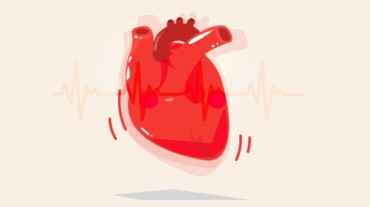
To maintain a healthy heart, one can take several measures, including exercising and eating the right diet. Of course, they help to reduce the risk of a heart attack, and keep the ‘bad’ cholesterol in check.
But if you follow both these practices, and ignore stress management, then all your effort goes down the drain. Yes, you heard it right. Stress management is critical to maintain good heart health.
Take stress seriously
According to the World Health Organization (WHO), stress has been classified as a health epidemic of the 21st century. In general, the levels of stress-induced anxiety in the modern world have touched the roof, and over time, it has snowballed into a growing health crisis.
Stress is the body’s way of reacting to any circumstance that requires an adjustment or response. The body reacts to these circumstances with physical, mental, and emotional responses. During stressful events, the body releases a burst of chemicals, such as adrenaline that provide energy to get certain tasks done, but in the long term, stress can cause everal heart-related issues.
As per Harvard Health Publishing, stress in challenging situations plays a major role in causing heart-related diseases. Depression, anxiety, hostility, and even social isolation has an adverse impact on cardiovascular health.
Stress management is important
Now we know why it is critical to incorporate stress management practices in our daily lives, in order to avoid the risk of heart-related ailments.

We spoke to Dr Udgeath Dhir, Director & Head, CTVS, Fortis Memorial Research Institute, Gurugram to truly understand why stress management is important for good heart health.
According to him, “managing and preventing heart diseases has three components: dietary, physical activity and stress management. These three components need to be given equal importance to ensure the heart stays healthy. Doing so will contribute to the holistic management of cardiovascular diseases.”
The link between stress and heart disease you need to know about
Dr Udgeath shares that many people believe that just because they’re eating healthy and working out a couple of times a week, they can allow themselves to overwork. However, one needs to be in control of their emotions and their reactions to tense situations in order to stay healthy.
Someone who doesn’t learn to manage stress will not be able to truly manage their diet and follow a workout routine. Moreover, if they are not able to control stress levels, it will manifest in the form of health issues after a prolonged period.
Select Topics of your interest and let us customize your feed.
PERSONALISE NOWSome stress management tips to help you out
You will need to come up with your own strategy, according to your likes and daily routine. Keep in mind that reducing stress has a lot to do with indulging in leisure time.
These strategies can include getting enough sleep, which will increase energy levels and make you feel less irritable. Listening to music is also helpful, as it slows down the pulse and heart rate, which lowers blood pressure, and decreases the levels of stress hormones.
Also, read: 7 sneaky but harmful ways in which covid-19 stress is affecting your body

Since stress management, as an approach is wholesome in itself, even exercising and dieting is part of the process of coping with stress.
Harvard Health Publishing mentions, “Exercise reduces levels of the body’s stress hormones, such as adrenaline and cortisol. It also stimulates the production of endorphins in the brain that are the body’s natural painkillers and mood elevators.”
As the physical transformation of the body happens, the level of emotional well-being also increases due to improved self-image and confidence.
A healthy diet that incorporates leafy vegetables can provide the necessary vitamin K, which helps protect your arteries and promotes blood clotting. This, in turn, controls blood pressure, decreases arterial stiffness and improves the function of cells lining the blood vessels.
Meditation is another great technique to manage stress, as it’s known to help individuals sleep better, cope up with symptoms associated with mental disorders like depression and anxiety, reduce psychological difficulties associated with chronic pain, and even improve cognitive and behavioural functions.
Also, watch:
Therefore, exercising and maintaining a healthy diet is good for the heart, and should be made part of our daily regimes. However, stress management is equally important, so don’t ignore it at all!